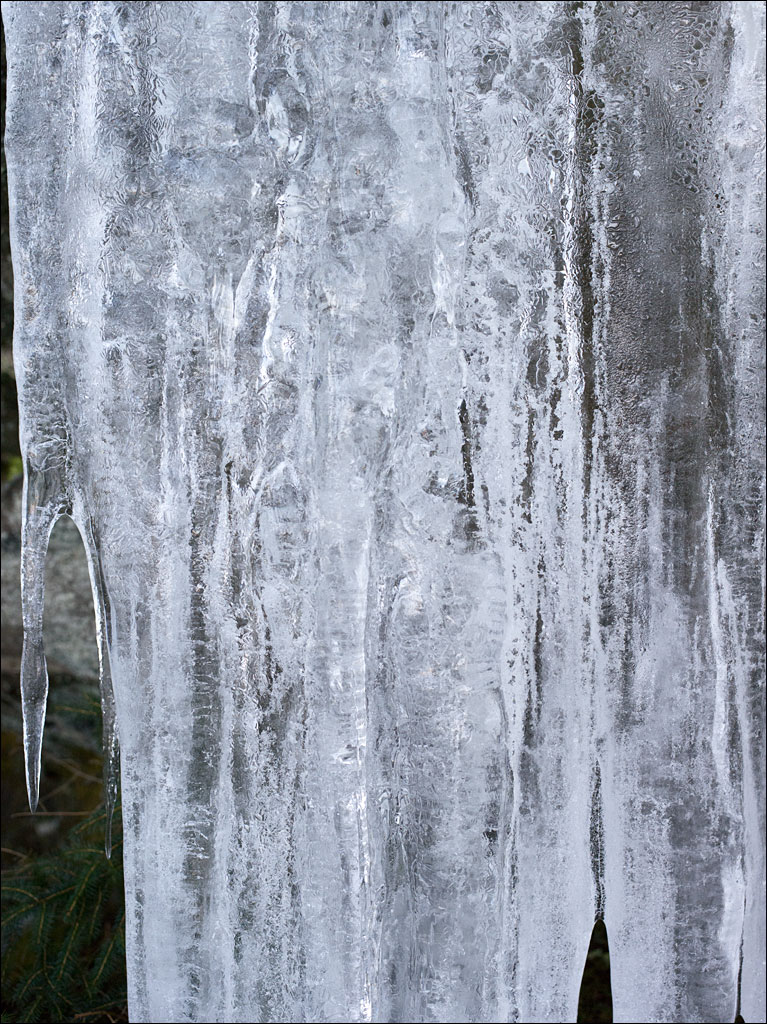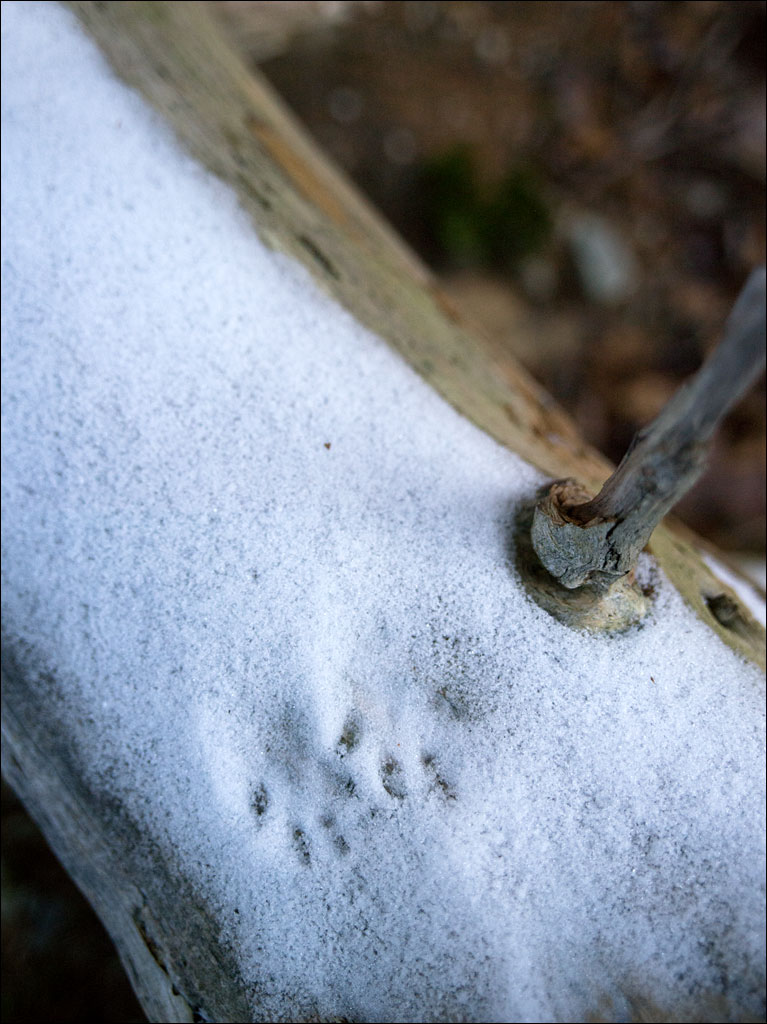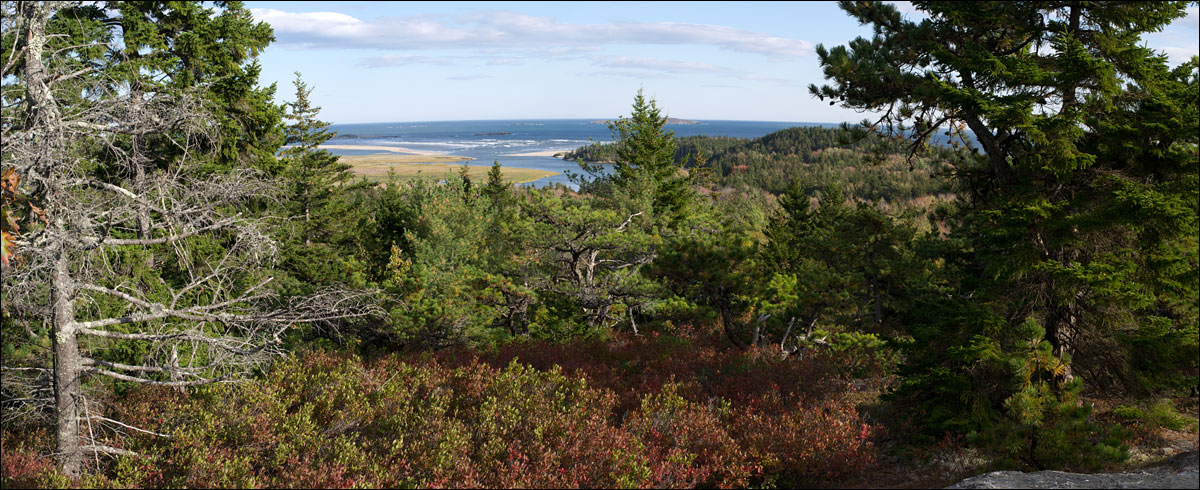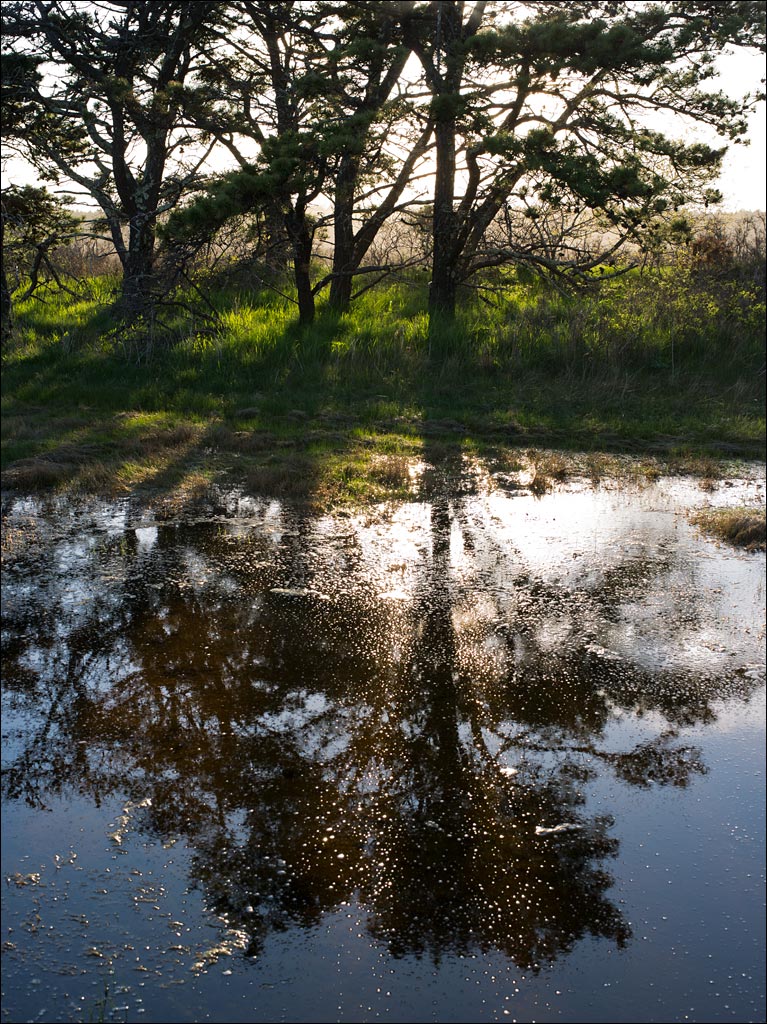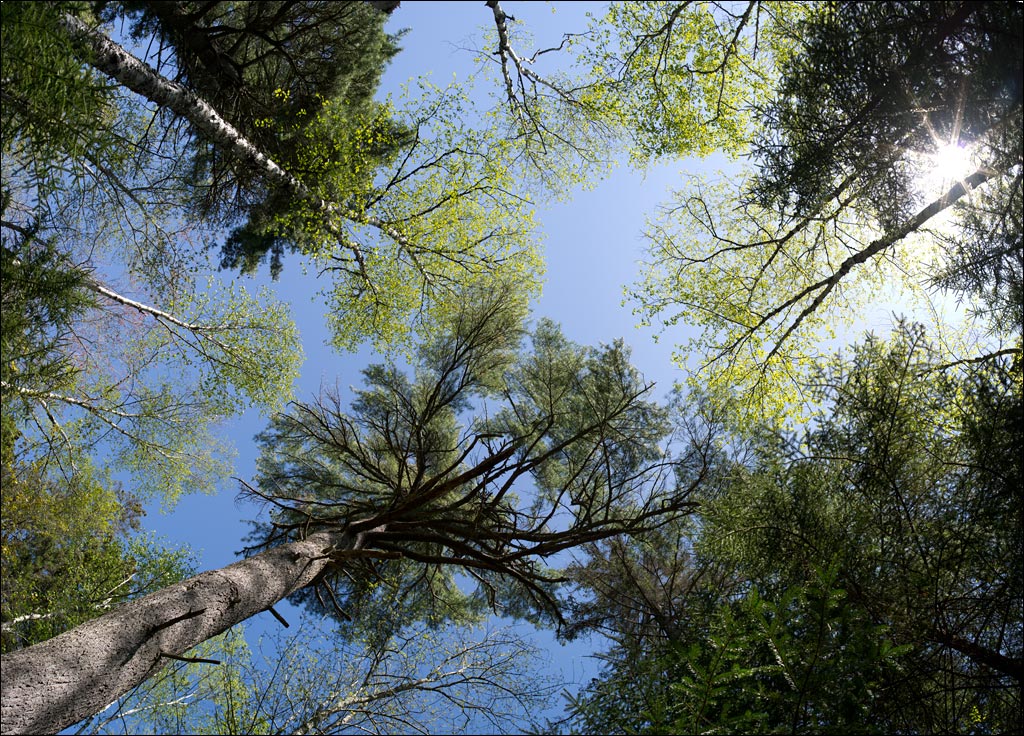 May is here. We are starting to see this years foliage. The early green is so vibrant compared to the darker greens of summer. These particular trees are in Bates-Morse Mountain Conservation Area in Phippsburg, Maine. Click on the image for a larger view.
May is here. We are starting to see this years foliage. The early green is so vibrant compared to the darker greens of summer. These particular trees are in Bates-Morse Mountain Conservation Area in Phippsburg, Maine. Click on the image for a larger view.
Tag Archives: Bates-Morse Mountain Conservation Area
Barren Landscape
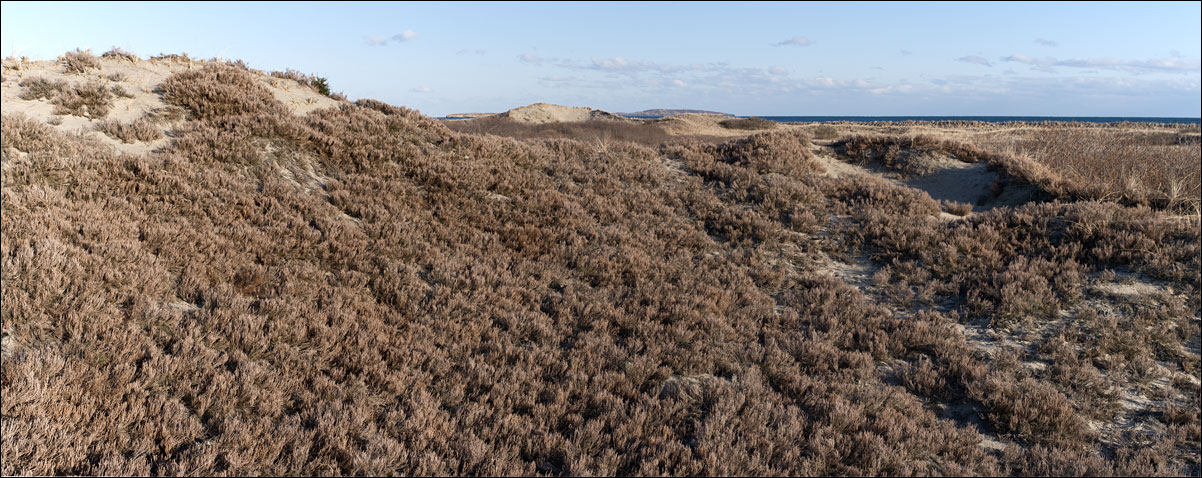 The dunes along Seawall Beach at Bates Morse-Mountain Conservation Area. Winter holds the landscape in stasis. Click on the image for a larger view.
The dunes along Seawall Beach at Bates Morse-Mountain Conservation Area. Winter holds the landscape in stasis. Click on the image for a larger view.
I have recently been around conversations in art, and in particular, photography. One conclusion I keep taking away about our art world seems to be a boredom with the world and its beauty. Photography seems to echoing our narcissistic times by making statements about itself; declaring itself a fiction and fetishizing this revelation. And when it does look at the world, it is to exploit it as a freak show or to confuse banality with profundity.
Or is our wider culture simply bored with the world? Like adrenaline junkies, we seek out novelty, something weird or strange. If there is nothing that gets our immediate attention, do we move on? Has the norms of advertising conditioned us into wanting instant recognition, instant gratification?
Sand is the detritus of the land. Having been reduced to such a fine state, the wind and water control its destiny. Yet, plants have evolved to exploit this unlikely environment. Invading it. Holding the shifting ground in place. And when dormant in winter, this organic colony continues its grip. Even when it trades its summer green for brown, it is beautiful.
Wildlife is (not) cute…
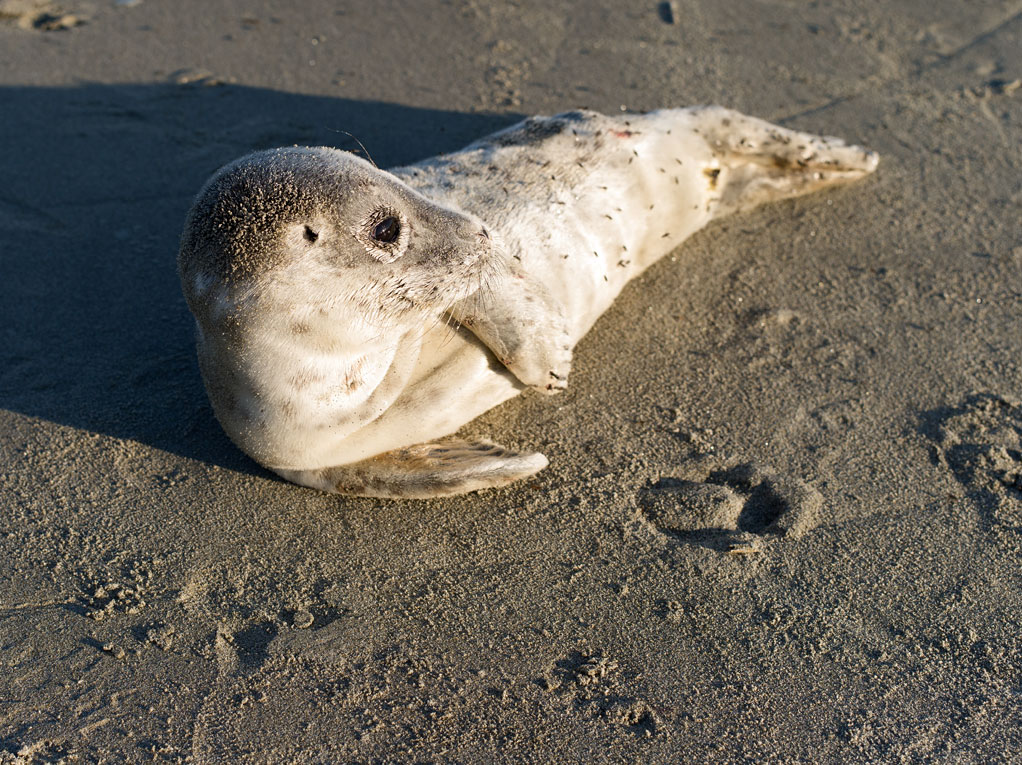 Wildlife looks cute, like this harbor seal pup, but they will not think of you as cute. Marine mammals are found along the coast of Maine. If you think an animal is injured or abandoned, call Maine Marine Animal Reporting Hotline at 1-800-532-9551. Do not approach the animal or try to handle it—not only is it illegal to handle marine mammals, but also they will bite. Appearances can be deceiving; mothers can leave their pups on a beach for up to 24 hours. Click on the image for a larger view.
Wildlife looks cute, like this harbor seal pup, but they will not think of you as cute. Marine mammals are found along the coast of Maine. If you think an animal is injured or abandoned, call Maine Marine Animal Reporting Hotline at 1-800-532-9551. Do not approach the animal or try to handle it—not only is it illegal to handle marine mammals, but also they will bite. Appearances can be deceiving; mothers can leave their pups on a beach for up to 24 hours. Click on the image for a larger view.
Tracks
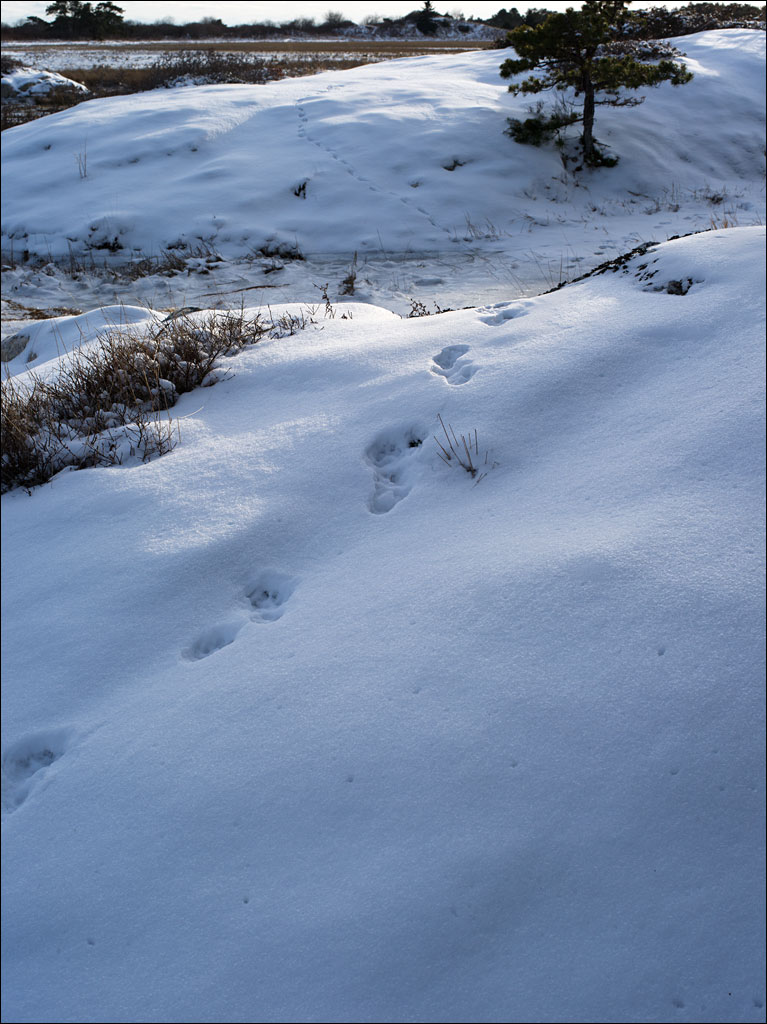 Locard’s exchange principle, named after the French forensic scientist, can be summed up simply—every contact leaves a trace. No matter how small nor how transitory, our journeys leave something of us behind and carry away something with us. Every track, no matter if taken by a solitary traveler, is woven with those that came before and will come after. Click on the image for a larger view.
Locard’s exchange principle, named after the French forensic scientist, can be summed up simply—every contact leaves a trace. No matter how small nor how transitory, our journeys leave something of us behind and carry away something with us. Every track, no matter if taken by a solitary traveler, is woven with those that came before and will come after. Click on the image for a larger view.
Frozen
Illusions
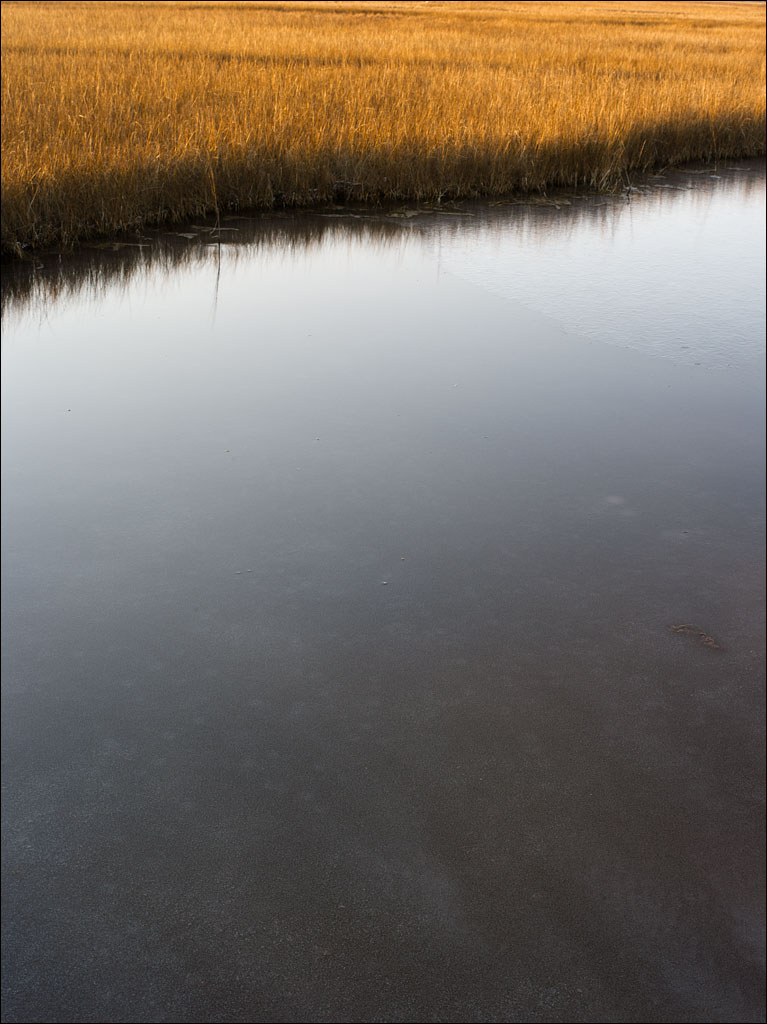 How do we see the natural world? How do we read the landscape? Every season has its illusions. The low sun of winter gives the land a warm, inviting character—known as the golden hour. This pond on a salt marsh in Bates-Morse Mountain Conservation Area is not liquid, but frozen over with a thick layer of ice. Click on the image for a larger view.
How do we see the natural world? How do we read the landscape? Every season has its illusions. The low sun of winter gives the land a warm, inviting character—known as the golden hour. This pond on a salt marsh in Bates-Morse Mountain Conservation Area is not liquid, but frozen over with a thick layer of ice. Click on the image for a larger view.
Signs of Life
To the Sea
Where the Land meets the Sea, part 3
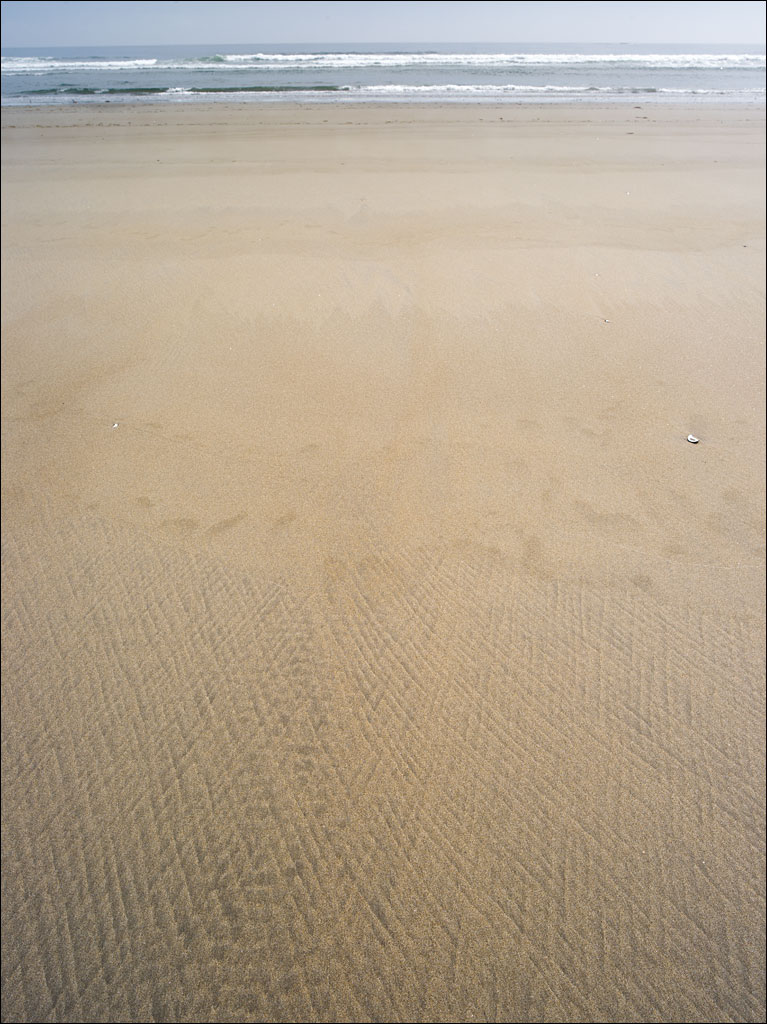 For all of Maine’s lengthy coastline, what is rare is sand. Seawall Beach comes between the salt march of Bates-Morse Mountain Conservation Area and the Atlantic Ocean. Many threatened seabirds need the dunes behind these beaches to reproduce, which makes these areas along the coast extremely important. However, what are not rare on the Maine coast are mist and fog. Click on the image for a larger view.
For all of Maine’s lengthy coastline, what is rare is sand. Seawall Beach comes between the salt march of Bates-Morse Mountain Conservation Area and the Atlantic Ocean. Many threatened seabirds need the dunes behind these beaches to reproduce, which makes these areas along the coast extremely important. However, what are not rare on the Maine coast are mist and fog. Click on the image for a larger view.

